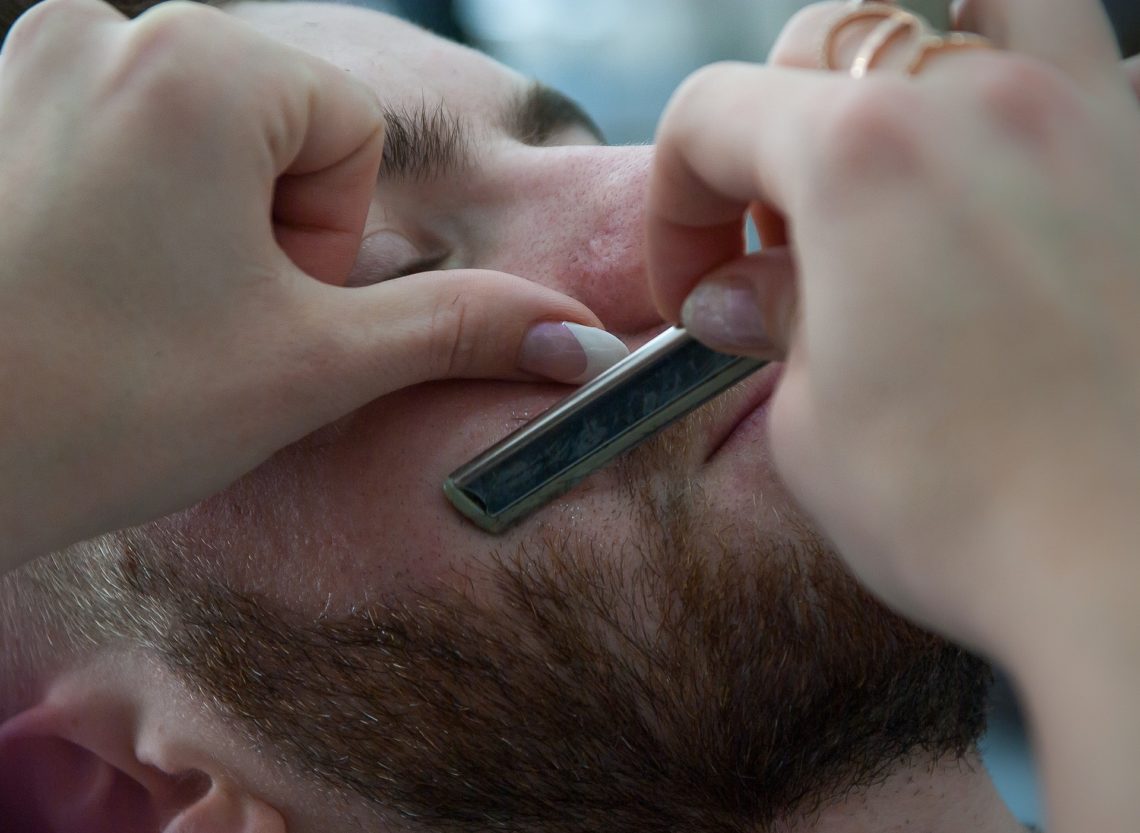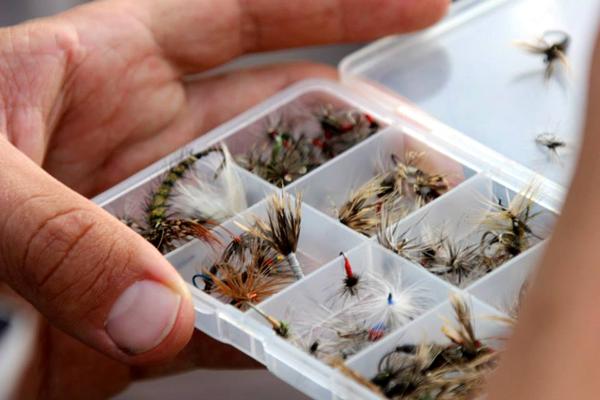by Grace Schultz
DISCLAIMER: I, in no way, believe every man is like this, nor do I believe that all men were raised like this. I simply want to highlight the way our modern society promotes the ideals that fall under the toxic masculinity category.
A six-year-old boy is riding his bike and falls off. He scrapes up his knees, they are bleeding a lot, and there are little pieces of gravel in them from the trail he was riding with his family. His mom and dad clean it out and while doing so he begins to cry. “Buck up kiddo, you’re fine. Boys don’t cry,” his dad tells him. One day in his 7th grade year, he is bullied for being in theatre. “Boys don’t sing and dance, that’s gay!!” says one boy. It’s now his junior year of high school, varsity football tryouts were last week and the team roster comes out, he got JV. He’s the only junior on JV. His eyes well up with tears as he begins to feel insufficient as a man and as if he will be a disappointment to his dad, grandpa, and friends but he quickly suppresses those emotions before the tears fall and someone notices. He can already hear the responses from onlookers in the hall that he were about to cry. He can cry in the bathroom stall if he needs to or, better yet, his room at home where nobody will see. His dad tells him that if he wasn’t so scrawny maybe he’d have gotten on varsity. Senior year, his dog of 12 years dies. His best friend offers the most sympathy he can saying, “Damn, that sucks…So are we still going to the varsity game tonight?” Completely void of emotion or empathy. He brushes it off and doesn’t bring it up again. He’s at dinner with all of his friends a few years later after his 21st birthday and all of the guys order a Corona with lime and he orders a glass of red wine. He gets a bunch of sour looks from his friends, “Wine? Really? That’s a bit of a women’s drink, don’t you think?” He quickly changes his order to a beer before the waitress leaves. Better a beer than hearing all the backlash from his friends.
Gay, weak, stupid, dumb, girly, woman, whipped, sissy, coward, afraid, little b*tch, f*ggot, queer, p*ssy, disappointment. All of these words are used to break down people, specifically men here, and make them feel as if they are inadequate; not meeting some illegitimate standard of measure.
Men are constantly told, in almost every part of their lives, that they have to be tough, they can’t show too much emotion (but hold back too much and you’re a brick wall), can never cry, need to be able to grow facial hair, be strong, charming, and be a master with the ladies, etc. If they lack in any single aspect of these, they are considered less and seen as less desirable by many of their peers, family, and, worst of all, themselves. Being a man in today’s society is often dictated by how others perceive them and is defined by a list of traits. These things are taught from the second they are born to the day they die. To be a man is not simply to have been born male but comes with a list of expectations. We, as a society, threaten to take away “man cards” and immediately tear men down for not living up to our prince-charming, grease and oiled, roughed handed, strong, tall, handsome, sport-loving, beer-drinking standards. The systematic installation of a set of these so-called ideals is toxic and creates many issues for men throughout their lives.
Guante, a spoken word poet from Minneapolis, Minnesota, wrote a poem called 10 Responses to the Phrase, Man up in 2012. In his poem he argues against the ways society deems to be an acceptable man. How a man must fall into certain categories, check certain boxes, and act a certain way. A few of my favorite excerpts are number two and number six out of his ten ways.
2. If you want to question my masculinity, like a schoolyard circle of curses, like a swordfight with lightsaber erections, save your breath. Because contrary to what you may believe, not every problem can be solved by “growing a pair.” You can’t arm-wrestle your way out of chemical depression. The CEO of the company that just laid you off does not care how much you bench. And I promise, there is no lite beer in the universe full-bodied enough to make you love yourself.
Here, he talks about depression in men and boys. One in 20 men will be diagnosed with depression at some point in their lifetime compared to 1 in 10 for women (“Depression in Men: Symptoms and Physical Effects”). Yet, it is also much more acceptable for women to be open and honest with themselves, family/friends, and medical professionals about their feelings than it is for men in today’s society. American culture largely contributes to this, some may even say is the cause. In the USA, we value strength and men who are tough and dismiss men who are soft in character and offer more emotional depth than a rock (“Depression in Men: Symptoms and Physical Effects”). Are men two times more chemically balanced than women or do we, as a society, make it two times harder for men to be open and honest with others about what they are truly feeling?
Depression is a chemical imbalance and when those suffering feel they have no outlet. It could result in years of suffering or even suicide. According to The American Foundation for Suicide Prevention, “in 2017, men died by suicide 3.54x more often than women,” and “white males accounted for 77.97% of suicide deaths in 2017.” If men are the ones committing suicide more but supposedly only suffer from half of the depression that women do, how does this make sense? Men are told every day to buck up, grow a pair, and stop being a little b*tch. All implying that feeling any feelings of sadness, fear, or depression are unacceptable. Living in a society that tells you your feelings are invalid leads to people being less open and to them brushing their feelings aside or suppressing them until they start to pick up unhealthy and even dangerous coping mechanisms and feeling as if they, themselves, do not matter.
Guante fills his poem with many stereotypes that men are expected to fit into and ends a stanza with the idea that men also need to love themselves. It is seldom heard of men performing self-care or actively talking about it. Self-care doesn’t fit any box other than doing something that makes you feel good, whether it’s building or creating mechanical things to doing a face mask or watching your favorite movie. Yet, it is constantly overlooked and dismissed as something men can also partake in because self-care is a stereotyped girly thing and men are tough. But men need to love themselves just as much as women need to.
The sixth stanza of his poem talks about how men are placed into a box and that if they do not fit into this box they are seen as less important men.
6. The phrase “Man Up” suggests that competence and perseverance are uniquely masculine traits. That women—not to mention any man who doesn’t eat steak, drive a pickup truck, have lots of sex with women—are nothing more than background characters, comic relief, props. More than anything, though, it suggests that to be yourself—whether you, wear skinny jeans, listen to Lady Gaga, rock a little eyeliner, drink some other brand of light beer, or write poetry—will cost you.
It is important to recognize that, every day, the media tells men how to be more manly. Ford, Chevy, and Dodge all provide ways for men to be more manly. Buy their truck, haul big equipment, and be “Ford tough!” Companies, such as these, also imply manliness in their slogans, Ford is an obvious one, but Dodge Ram says, “if you can’t dodge it, ram it.” Dodge uses sexual innuendos targeted at men to use women to make them feel more manly. This kind of subconscious reinforcement leads to poor behavior in men and a constant reminder that, to be a man, you must not be womanly but must use women. According to a study done by the University of Michigan, “when men are taught to be dominant and aggressive, this often leads to hyper-masculinity, male peer support for sexual aggression, development of rape myths, and adversarial sexual beliefs (Kilmartin, 2000; Rozee & Koss, 2001)” (“Sexual Assault Prevention and Awareness Center”). More blatantly stated, when we push men to constantly act more masculine, we also promote these types of inappropriate behavior, thus leading to locker talk, cat calling, etc., and even more severe actions such as sexual assault and rape.
Here are a few more examples of how to be a man in America’s society as deemed by advertisements: “25 grams of protein to take you from a tailgater to a tail getter” (Muscle Milk), “consider your man card reinstated” (Bushmaster Firearms), “for men, by men” (Powerful Yogurt). All of these lead to the idea that to be a man you must drink protein and lift weights, shoot big guns, and eat food to get you jacked. Not only does the media push men to believe they need to use women to be more manly, but also that, to be men, they need to be big, strong, and powerful (or at least do things that make them appear so). This kind of advertising is awful for men’s body image. As a society we have deemed it completely wrong to photoshop photos of women to fit a certain way and have started body positivity movements for women across the nation and globe. But we ignore the same kinds of advertisements that are targeted at men. These ads, telling men how to look, are not rare. They are just as common as ads targeted at women.
However, in January of 2019, there was an advert by, what was a traditionally masculinity focused company, Gillette. The director was very intentional in his planning and delivery. It starts with men looking in the mirror and a narrator asking a rhetorical question to the audience, “is this the best a man can be?” Gillette actually starts with a scene from their own previous advertisements, after the man in the mirror appears. While he asks, you hear other omniscient voices saying boys will be boys as a variety of scenes play out from young boys rough housing as the other says no, women being sexually harassed in a variety of settings and pop culture, etc. But it shifts after the Me Too movement is mentioned via news stories. The narrator then explicitly states how it is the time to change these poor habits and societal acceptances. The scenes then switch from men allowing and participating in these actions to men standing against these actions (harassment, bullying, fighting etc,).
Gillette made a point to throw out the old ideas of promoting toxic masculinity by saying that the phrase, boys will be boys, instead of allowing them to be sensitive and showing compassion was unacceptable. That locker room talk was not seen merely in locker rooms nor was it acceptable anywhere. Forcing men to accommodate this cookie cutter, one-size-fits-all-machismo, instead of being their honest selves is no longer a tradition that we, as a society, and they, as a company, want to or should uphold. Gillette broke the typical advertisement mold, that they also used to obtain and said we are through with forcing and expecting men to adhere to these unrealistic and unfair expectations.
As empowering as this advertisement was for some men, it faced, and continues to face huge backlash form many. Ben Shapiro, an American conservative political commentator, had quite a bit to say about the ad. Essentially, he took every premise that Gillette put forth and dismissed the claim by saying things like ,“not enough context”, “men cannot find women attractive as it’s not okay”, “Gillette is merely targeting social justice warriors”, “women woman-splain more than men mansplain”, and “real men don’t actually let their kids pummel each other.” Shapiro tries incredibly hard to make the audience watching his video feel dumb for agreeing with Gillette and that these things are caused by, this is a pretty robust assumption, women and weak men. He claims that toxic masculinity is caused by an absence of traditionally strong men. He is not the only one, people all across social media are saying things about how Gillette has gone soft, is too liberal, or is using their platform for all the wrong things. Despite this backlash, Gillette has stuck by their message and continues to promote the ideas of masculinity and how it doesn’t have to be traditionally toxic anymore.
Toxic masculinity, as a whole, is not merely societal problem, it is a personal problem that almost everybody, consciously or not, promotes. Through simple jokes or flat out accusations, families are constantly placing the ideas into boy’s heads that they have to be a certain way to be validated. When it is written out, it seems so obvious and insane, yet when it’s not a visual or constant reminder (to not allow toxic behavior), it can be easy to promote everything people want to stand against.
The most ironic thing about toxic masculinity is that when we see the behavior our society has cultivated from men, we are disgusted at the results. One in three women will be or have already been sexually assaulted in their life (“Sexual Assault Prevention and Awareness Center”). The overwhelming majority are by male perpetrators, but boys will be boys. Donald Trump, the President of the USA, has not only been accused of mere locker talk, such as his most infamous statement, “grab them by the pussy. You can do anything”, but also of actually sexually assaulting women, but boys will be boys (Feinberg & Feinberg, 2016). A few more well known scandals are the Harvey-Weinstein cases, Bill Cosby, Mike Tyson, Bill Murray, Nicolas Cage, Chris Brown, etc. etc. etc. There are dozens of cases of men assaulting, beating, and raping women, but boys will be boys. We are horrified to hear it and quick to cover it up, but boys will be boys. By telling young boys to be more manly and enforcing these same ideals, we cannot be surprised when boys will be boys. You reap what you sow and when you tell boys that the only way to be respected is by checking these macho-man-women-using-emotionally-void-tough-guy boxes, we can only expect to sow these consequences.
Each generation teaches the next.
The Gillette ad said it best, “the boys of today are the men of tomorrow.” It
is possible to teach boys how to grow up and still hold some of the so-called
ideals of being a man without teaching them that they cannot be sensitive or
emotional, that they have to use women to appear stronger, or that they can’t
miss checking any other tough guy box. Men can still be men with traditional
values of being strong, helping women, and being “the rock” without being toxic
to themselves and others because the phrase, boys will be boys, doesn’t
justify the consequences of suppressed emotions, undiagnosed depression,
suicide, sexual assault, and poor self-body image. Holding men to this
outrageous standard of masculinity is more than toxic, it’s deadly.
References
Depression in Men: Symptoms and Physical Effects. (n.d.). Retrieved from https://www.webmd.com/depression/depression-men#1
Guante. (2012, February 07). 10 Responses to the Phrase “Man Up” (Spoken Word). Retrieved from https://www.guante.info/2012/02/10-responses-to-phrase-man-up-spoken.html
Baldoni, J. (n.d.). Why I’m done trying to be “Man Enough”. Retrieved from https://www.ted.com/talks/justin_baldoni_why_i_m_done_trying_to_be_man_enough
Sexual Assault Prevention and Awareness Center. (n.d.). Retrieved from https://sapac.umich.edu/article/196
Tang, K. (2013, October 16). 17 Dumbest Ads Targeted At Dudes. Retrieved from https://www.buzzfeed.com/kevintang/17-dumbest-ads-targeted-at-dudes
Gillette. (2019, January 13). We Believe: The Best a Man Can Be. Retrieved from https://www.youtube.com/watch?v=koPmuEyP3a0
Feinberg, A., & Feinberg, A. (2016, October 07). Donald Trump On Getting Women: “Grab Them By The Pussy”. Retrieved from https://theconcourse.deadspin.com/donald-trump-on-getting-women-grab-them-by-the-pussy-1787545407
Peasants, T. H. (2019, January 15). Retrieved March 19, 2019, from https://www.youtube.com/watch?v=xbguwInlEGg






One Comment
Kami
This is a really touching piece. Society needs to not have double standards and allow men to have feelings. I have men stifle feelings and they shouldn’t have to. Feelings are not gay and having facial hair does not make somebody a man. These were great stereotypes to touch on. Really nice piece to read.